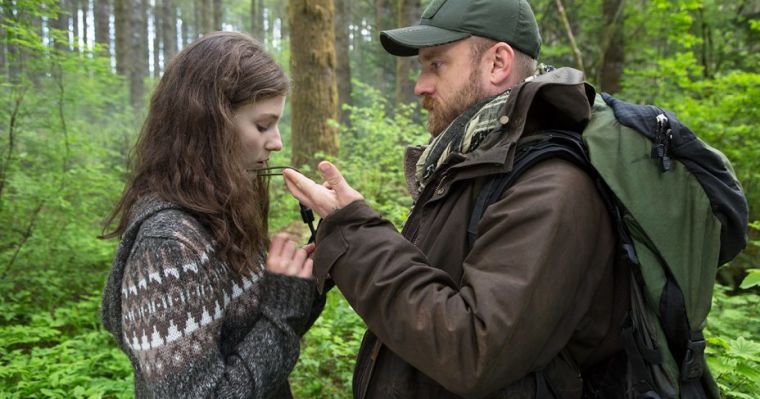3 min to read
Leave No Trace
Remember the name Thomasin McKenzie, her brilliant performance should make her a force to be reckoned with for the foreseeable future.
by Zach Saul

Leave No Trace feels like a relic from a gentler time, when people assumed the best about one another, and important conversations could take place on screen without characters screaming at one another. We’re introduced to WIll and Tom living a peaceful existence in a public park near Portland, Oregon scraping by selling PTSD drugs to nearby homeless people and using the money for food and supplies. Although their situation looks and feels bleak, by all accounts the two are living happy fulfilling lives and Tom appears confident and well adjusted despite being raised homeless in the woods. When the two get discovered by park rangers and taken into custody, that’s when the film really takes off.
Thomasin McKenzie gave what was for me, the most memorable performance by an actress in several years. The fragility and emotional range she showed was stunning to watch, and captures your attention from the seconds she appears on screen. There’s a lot to unpack in this movie; it’s subtle jabs at social workers, and it’s indictment of how we treat our veterans. The most interesting to me was Granik’s commentary on communication. So much of Will and Tom’s communication in the woods is hyperpersonal, and direct — as you’d expect for two people living in solitude, and relying on one another for food, warmth, and fulfillment. However the second they’re accosted by police they’re confronted with the indirect communicators of the western world. When Tom is told she’s being given a literacy test to learn more about her, Tom replies “well you could just ask…” Then Will breaks down when a computerized robot voice asks him a series of deeply personal questions about his mental state and a social-worker eventually intervenes to help him finish. In another scene Will is offered a cell phone and replies “we’ve always gotten by without all that”. All of these moments contributed to a feeling that despite Will’s irresponsible decisions (there were many) his life with Tom in the woods carried an authenticity the westernized world doesn’t.
On it’s surface this is a bleak story about a rigid ideology of a man (Tom’s father) refusing to adapt, and an impossible choice that his daughter is forced to make. However, the movie is jam-packed with these seemingly mundane, but ultimately deeply relatable moments that smartly question western culture. There’s this great moment when Tom and Will first enter the house the social workers arranged for them to stay at, they share a longing stare, and Will says “We can still think our own thoughts”. There’s a million ways to read this: as someone possibly suffering from PTSD, he may be on a quest to reclaim the thoughts stolen by war flashbacks. Perhaps he’s expressing a feeling of imprisonment, and the weight of expectation from the social workers, and his new host family. The one thing we know for certain that in this moment and throughout the movie, Will and Tom are grasping at a feeling of independence, and it’s only when community is forced upon Tom that she decides she wants it.
The Good: Leave no Trace is a movie with impressive emotional complexity, and and all-time performance by a fresh young actress. The film also has serene cinematography, and characters that are gentle but deliberate. Don’t let Leave No Trace’s slow pace fool you, there’s a reason for almost every shot we see.
The Bad: This movie is not dramatic in the traditional sense we expect dramas to be. The pain Will and Tom feel is a slow burning pain, and even the cathartic moments seem understated. There are lots of unanswered questions about Will’s past, and Tom’s future. Some additional flashbacks might have helped us understand Will’s compulsion to live on the run in the woods.
| Movie Details | |||||
|---|---|---|---|---|---|
| Studio: | |||||
| Director: | Debra Granik | ||||
| Written By: | |||||
| Staring: | Thomasin McKenzie | Ben Foster | Dale Dickey | ||

Comments